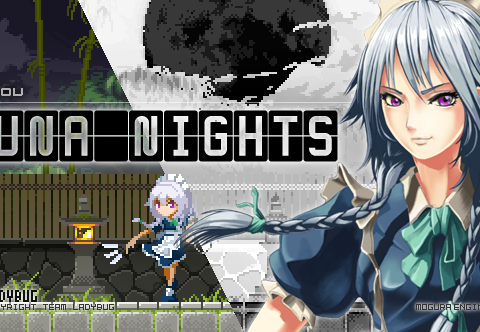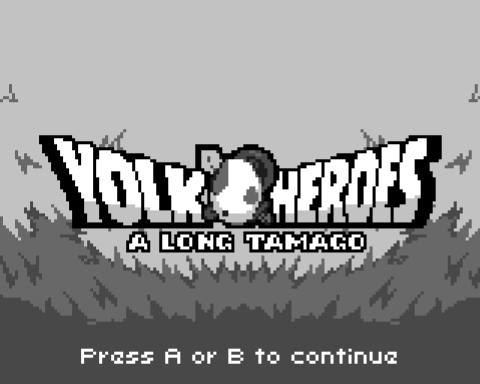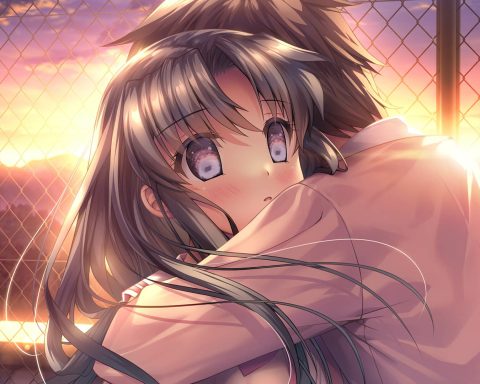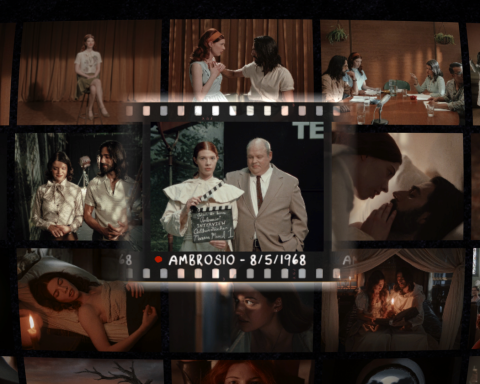It’s risky setting up an independent development studio, and the team at Western Australia-based Kactus, have seen it all.
From learning how to develop games, coming from an enterprise software background (a very different environment, we’re told), to having a critical source of financing pulled at the last moment, the team is now getting close to releasing its first title across Android platforms (and later the Ouya console). Legacy of Barubash is a very ambitious startup project, so we sat down with Kactus’ managing director, Kamil Czajko, and art director, Sue Czajko, to chat about where Barubash came from, the team’s charitable intentions, and why microtransactions was never an option.
Digitally Downloaded (DD): What inspired you to start up a new development studio?
Kamil Czajko (KC): I’ve always wanted to make games, even as a kid back in the Amiga days. I made one game as a school project and worked for many years on a RTS which was incredibly ambitious even for an AAA studio, let alone for one guy working in his spare time and unsurprisingly, it really never got very far.
In 2010 I felt like I was in a personal rut with my day job. I wanted to be creative and I wanted to help charity. So I combined the two and came up with an idea to make games, give 20 per cent of proceeds to charity and use the rest to fund future games to continue the cycle. I figured over time we would be able to help far more people this way than if I stayed in a 9-to-5 job. I’m thrilled that the renewal for our Medicins Sans Frontieres (MSF) fundraising authorisation came in recently. MSF have been really great about everything even though we don’t really fit in with their typical fundraiser profile.
DD: Legacy of Barubash seems to be very ambitious for a first project – what inspired it?
KC: Part of making Legacy of Barubash stemmed from a frustration with the games that were available on the Android market at the time, and RPGs in general. We wanted to make a game that we would want to play ourselves. We wanted the game to have an engaging story like the RPGs we grew up with (Square, Bioware, Black Isle Studios), but with gameplay that was fast paced in a Diablo-like manner. I guess it’s a fusion of Eastern and Western RPGs. Also, we wanted to utilise the touch screen of the Android devices in a way that wasn’t just another on screen controller. As we worked on Legacy of Barubash we identified features we’d like to include in an RPG and also identified some things that bugged us about certain RPGs and thought about how to remedy these issues. We incorporated all these ideas back into Barubash.
Sue Czajko (SC): With regards to the massive scope creep: someone contacted us early on in the project to let us know that an angel investor was interested in the game and wanted to put a sizable amount of cash into it. So we went about it formally and created a project plan. We were told that the cash was just around the corner, ready in roughly two weeks. However the two weeks dragged out into months, and the money never arrived. It turns out that the investor had lost a substantial amount of cash in the Global Financial Crisis and could no longer bankroll the project.
KC: At this point we had already committed to making a larger game. Artists, a sound designer and a writer were already on board. The story and the game world were now much expanded. We were told that the money was coming in a “day or two” for nine months straight, in the meanwhile we self-funded the project. We decided that the more ambitiously-sized Barubash was the game we would prefer to make and over two years later here we are.
DD: What have been the challenges that you’ve faced so far in developing the game?
KC: Many! Android was still very immature at the time, it had only just implemented multi-touch support in the SDK, and many of the examples were not very well written or supported. I came from an enterprise development background. The way things are done in enterprise are horribly inefficient for a game. There tends to be a right way to do things, and a fast way, and in game development if you can “fake it” or if it seems good enough, then it is.
Because we had originally aimed for a small RPG, we developed our in house engine to use to keep things simple. After several months of development we hit the limitations of this approach and rewrote the game rendering for OpenGL ES. For the OUYA release we’ll be moving the engine to ES2 so we can have prettier effects.
Also, device screen sizes keep getting bigger, I had only just expanded the engine to support up to a 1080p resolution and then Google announced the Nexus 10.
SC: Management skills were a huge learning curve. When we started, we didn’t realise just how much time we’d need to spend managing contributors and keeping everyone up to speed.
DD: Why did you decide on the Android platform for Barubash?
KC: When I broke my old phone in 2010 I ended up getting a HTC Desire as a replacement. I played around with Eclipse and realised just how easy it could be to make a simple game as long as we kept the scope small. The Android marketplace was barren, and many games that were available lacked depth. The indie scene on PC was only just on the cusp of the current explosion, so at the time we thought Android would be also more forgiving of a game that might not have AAA polish.
Android was just easy to get into and Java/ Dalvik was similar to the languages I’ve used in the past, the tools were readily available and I was easily able to get a simple proof of concept up in days.
DD: It’s interesting that you’ve decided that this will be a ‘pay-upfront’ game without microtransactions. From what I’ve heard the conventional wisdom with Android is that piracy is so rife that only the freemium-and-microtransaction model can work. What drove the decision to go with a traditional price structure?
KC: One could make the same argument for releasing a game on PC. I personally think the piracy arguments are overblown, one download does not equate to a lost sale and I do not see piracy as a major factor if Legacy of Barubash fails to sell. A recent study of P2P music downloaders showed that those who pirated, actually spent more on music than those who did not engage in piracy.
We will see if this ends up being the case with Barubash, but as someone who has been inconvenienced multiple times by DRM on software I’ve bought I’m very against doing anything that may impact my legitimate supporters on the off chance that it prevents a pirate. There will be a large free demo area (all of Chapter 1 with a level cap) and we will be continually adding content. The price point of each chapter is low at 99 cents and 20 per cent of that goes straight to charity. If someone still decides to pirate it, then nothing we do is going to convince them to buy it instead.
SC: In terms of sheer profitability, in-game purchases and the freemium model are definitely the way to go. However, a few things concern me about in-app purchases. As soon as you can achieve game goals by buying them with money you diminish that sense of achievement the player would otherwise get from completing a goal themselves. The Legacy of Barubash is not the sort of game where in-game purchases could be utilised in way that does not feel forced.
To me, charging players to make healing potions or for weapon upgrades would be akin to attempted extortion.
Another issue with in-game purchases is that often the people paying the largest sums of money are the ones who can least afford it. We don’t want to promote problem behaviours in our player base. At the moment some of the top grossing games on Android have given up any pretense of actually being a game and are simply slot machine simulators. I don’t believe gamers on a mobile device should be treated as second class gaming citizens.
I would not pay for in game currency or items myself so I don’t expect my players to. I suspect the sort of player who would play The Legacy of Barubash would not appreciate having to pay for character progression. For the team here at Kactus Games, making Barubash is about making a game we’d play, not some kind of cynical profit maximising scheme.
DD: Marketing a new IP and game in a crowded marketplace like the Android platform is a common issue for indie developers. What is going to be your approach to getting the good word of Barubash out into the market?
SC: Newer indies like ourselves will encounter a lot of difficulties when entering the market, there’s just so many of us and most don’t have a huge marketing budget. The fantastic thing about the indie scene is the sense of community, both in person and in social media. Indies tend to help each other out by spreading the word about each other’s games. Sadly for Aussies, Kickstarter is out of reach and Indiegogo can be very hit and miss in terms of meeting cash goals but can generate some awareness.
KC: We also want to try and connect with our fans and supporters, by making a game they can get excited about, treating them as people and by listening to their needs. Barubash is going to be quite unique in a number of ways which will let it stand apart from most of the games on Android. It won’t be dumbed down compared to the RPGs someone would play on a more traditional platform. Player choices and actions have a huge impact on the story and game world. Two people sitting down to compare notes after a few chapters might feel they have been playing wildly different games.
Barubash is also approaching beta, most of the core mechanics are in now, so we can focus on polishing it and honing story in the coming months. We are in the process of expanding our social reach on twitter and by engaging indie friendly publications. Also we’ll have a booth at PAX which should give us a mountain of exposure.
DD: Perth is a very young city when it comes to game development. What do you think of the local development scene?
KC: The community is great, it’s really supportive although it’s admittedly small. We’ve been to a few letsmakegames.org events now, and it is just nice to see people that are really excited about making games. The community is growing, so there are new faces every year. I’ve spoken to lecturers and students from TAFE and technical colleges, and there is strong interest from both students and lecturers in game design. I’ve been invited to speak to students and I’m thrilled at being able to share my love of game development with others.
DD: What are your longer-term goals for Kactus Games?
SC: To put it simply we’d love it if selling the games we make allows us to make more games. We’ve got prototypes and plans for quite a few ranging from kid’s educational games to strategy games for the PC. It would be a dream come true if we could get some of those made. We’d also like to be donating to more charities.
DD: What game developers inspire you, and why?
KC:
CD Projekt Red – for creating an amazing RPG with a few blemishes, that I dearly wanted to fix.
Black Isle Studios – for creating Planescape: Torment, and redefining to me what an RPG could be.
John Carmack – for being a constant inspiration by being John Carmack.
Although not game devs per se, the Penny Arcade guys for demonstrating that you can grow from humble beginnings and help change the world (Child’s Play)
SC:
In addition to those:
TSR – for Dungeons & Dragons, their pen and paper as well PC games. That’s where my RPG interest was incubated.
Re-Logic (Terraria) – for making a game focused on fun and player dictated exploration.
Also I’d be lying if I did not admit to Squaresoft/ Square Enix having a large influence on me, even if I’m not thrilled with the direction the Final Fantasy franchise ended up heading.
Also Sid Meier and Blizzard for keeping me out of trouble for pretty much the entirety of my teen years.










Looking forward to giving this a go when my Ouya arrives. 🙂
Yeah, it looks like a really impressive little game. I'm a big fan of Aussie developers too, so I'll be sure to support this on any platforms I own that they release it on.
Cant wait to try the finished product, might have to get a nexus just for this 😉